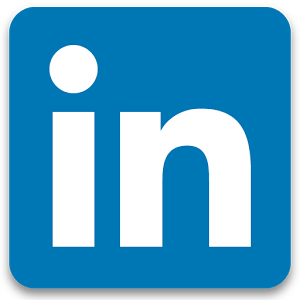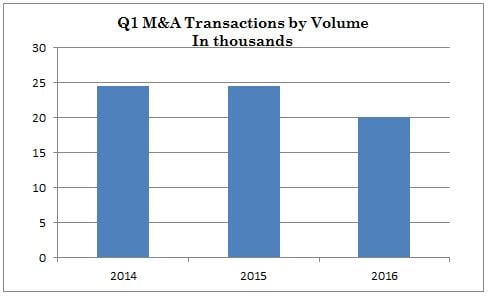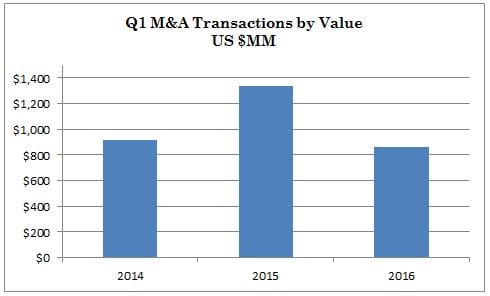The Importance of an M&A Advisor

The Importance of an M&A Advisor
While some debate the issue of whether to hire an M&A advisor or try to complete a transaction alone, it’s been well-proven that a good financial advisor can add value to completing a successful transaction.
M&A advisors play an integral role in orchestrating successful mergers, acquisitions, and divestitures. The best M&A advisors are generalists as they have broad experience to draw on as they work through the process of completing a successful transaction. Anyone interviewing an M&A advisor that receives the answer that the financial advisor knows exactly who will buy their company should keep looking. Often, the best buyer isn’t known to the company, but is carefully cultivated through the process by the M&A advisor.
The M&A advisor’s role is to orchestrate the transaction. One of our clients used the analogy of a choreographer. In some ways, the M&A process is a ballet that needs to be carefully scripted if the best possible results are going to be achieved. One of the most important objectives is keeping the process confidential. The M&A advisor also plays an integral role in mobilizing information, organizing the auction, negotiating terms, managing the diligence process, and finding solutions to a multitude of issues during the process.
One of the first steps that a good M&A advisor will take is to identify the client’s objectives. Next, there’s the discovery period where the advisor researches the client’s company in order to create first class documentation. The M&A advisor will also do research to find every possible prospective buyer on the sell-side or identify possible targets on the buy-side.
On the sell-side, the M&A advisor will create an Offering Memorandum or Confidential Information Memorandum so that prospective buyers can obtain information in a logical order about the company. More specifically, this document lays out information on the company’s operations and products (or services), industry analysis, financial background, forecasts, etc.
On the buy-side, it’s always good to have a well written document to give to potential sellers that outlines information on the acquiring company and their objectives. This makes the sellers comfortable and accelerates the process.
Whether it’s on the sell-side or the buy-side, a good financial advisor will know how to draft these documents, which are pivotal in attracting potential buyers or sellers. While some companies think they can do without a financial advisor, most entrepreneurs are ill-equipped to prepare these essential documents.
The M&A advisor is also very useful in the preliminary negotiations leading to an offer, structuring the transaction and negotiating and mediating throughout the process. The client can benefit from this advice as the financial advisor can help keep their client level-headed by maintaining realistic goals and expectations as well as providing unbiased advice. In addition, they can negotiate more effectively because they are removed from the inherent emotional complications, not to mention their expertise in the entire process.
Whether a client is looking to acquire or sell a company, they have the option of hiring a full service bank or a boutique bank as a financial advisor, which both inherently have their pros and cons. While full service banks have a greater variety and depth of resources than boutique firms, their effectiveness is also hindered by possible conflicts of interest that don’t affect boutique firms as severely. In a study done by Jie Wei, a financial economist working in the Office of the Controller of Currency in Washington, D.C., and Weihong Song, an assistant professor of finance and the University of Cincinnati, boutique banks on average are found to be less expensive overall and when used for financial advisory on the buy-side, the premium paid for an acquired company is less than using a full service bank.
For smaller middle-market companies, i.e., companies with less than US$250 million in revenues, a boutique firm can offer the client better service, specialized expertise, and better results than a larger full service bank. Most importantly, M&A advisors, because of their experience and expertise, can do a far better job at navigating the M&A waters than an entrepreneur whose expertise is in their product or services.
Versailles Group is a 29-year-old Boston-based investment bank that specializes in international mergers, acquisitions, and divestitures. Versailles Group’s skill, flexibility, and experience have enabled it to successfully close M&A transactions for companies with revenues between US$2 million and US$250 million. Versailles Group has closed transactions in all economic environments, literally around the world.
Versailles Group provides clients with both buy-side and sell-side M&A services, and has been completing cross-border transactions since its founding in 1987. More information on Versailles Group, Ltd. can be found at www.versaillesgroup.com.
For more information, please contact
Founder and President
+617-449-3325
April 26, 2016












